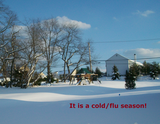
Zinc is an Essential Nutrient
Zinc is an essential mineral that is naturally present in many foods and is available as a dietary supplement. Zinc is involved in numerous aspects of cellular metabolism. It is required for the catalytic activity of approximately one hundred enzymes, and it plays a role in immune function, protein synthesis, wound healing, DNA synthesis, and cell division. Zinc supports normal growth and development of a fetus during pregnancy, childhood, and adolescence, and is required for the proper sense of taste and smell. A daily intake of zinc is required to maintain a steady state because the body has no specialized zinc storage system. The Institute of Medicine of the U.S. National Academy of Sciences, and the U.S. Food and Drug Administration (FDA) provided a recommendation for people to take zinc to maintain optimal health. The normal upper level of daily intake is 15 milligrams for adults.
Zinc – not over 40 mg a day
Because of the large number of people taking dietary supplements in varying amounts, including zinc, the tables of recommended daily allowances (RDA) by the Institute of Medicine of the U.S. National Academy of Sciences is now supplemented with a new value, “tolerable upper limit,” the largest daily intake amount that is unlikely to cause harm. The concept of tolerable upper limit for vitamins and minerals is pertinent only for supplemental products, because toxic amounts of vitamins and minerals are not available from natural food sources. The “tolerable upper limit” for zinc is 40 milligrams per day. If the daily intake of zinc is over 40 milligrams, toxic effects could occur.
Zinc and Common Cold
It is reported that zinc competes with rhinovirus to occupy viral receptors on the epithelial membranes of the nasal cavity; hence zinc plays an inhibitory role to viral infection. Zinc is found in many cold lozenges and some over-the-counter drugs sold as cold remedies. Since zinc-containing products are used as medicine, you had better know about its safety and efficacy.
In five studies that tested zinc in doses lower than 75 milligrams, no benefits were identified. When the daily intake of zinc was in extremely high doses, such as 75 milligrams and above, zinc lozenges had the ability to cut the length of colds significantly. However, doses of over 75 milligrams of zinc are five times over the U.S. FDA’s recommended daily zinc intake and almost double the Institute of Medicine of the U.S. National Academy of Sciences’ tolerable upper limit level. A number of the studies also found that taking the zinc lozenges came with various adverse side effects, such as nausea, a bad taste in the mouth, and upset stomach.
This is a common phenomenon of a toxic drug—if you cannot survive without the drug, you will take it to save your life first and then deal with the toxicity as the secondary priority. In the following chapter, you will read about a more effective and much safer method to cure your cold than taking zinc.
Nasal Irrigation Cures Common Cold
A group of doctors reported a breakthrough research in June 2011 that patients with colds or Flu performed nasal cleansing using NasalCare Nasal irrigation Kit, three times a day, their symptoms reduced the next day, and recovered very fast. The average reduction of the cold duration is 4.5 days. Flu was also gone quickly. This is a safe, easy and very effective treatment.
The post Commmon Cold – Zinc or Nasal irrrigation appeared first on Dr Natural Healing.

